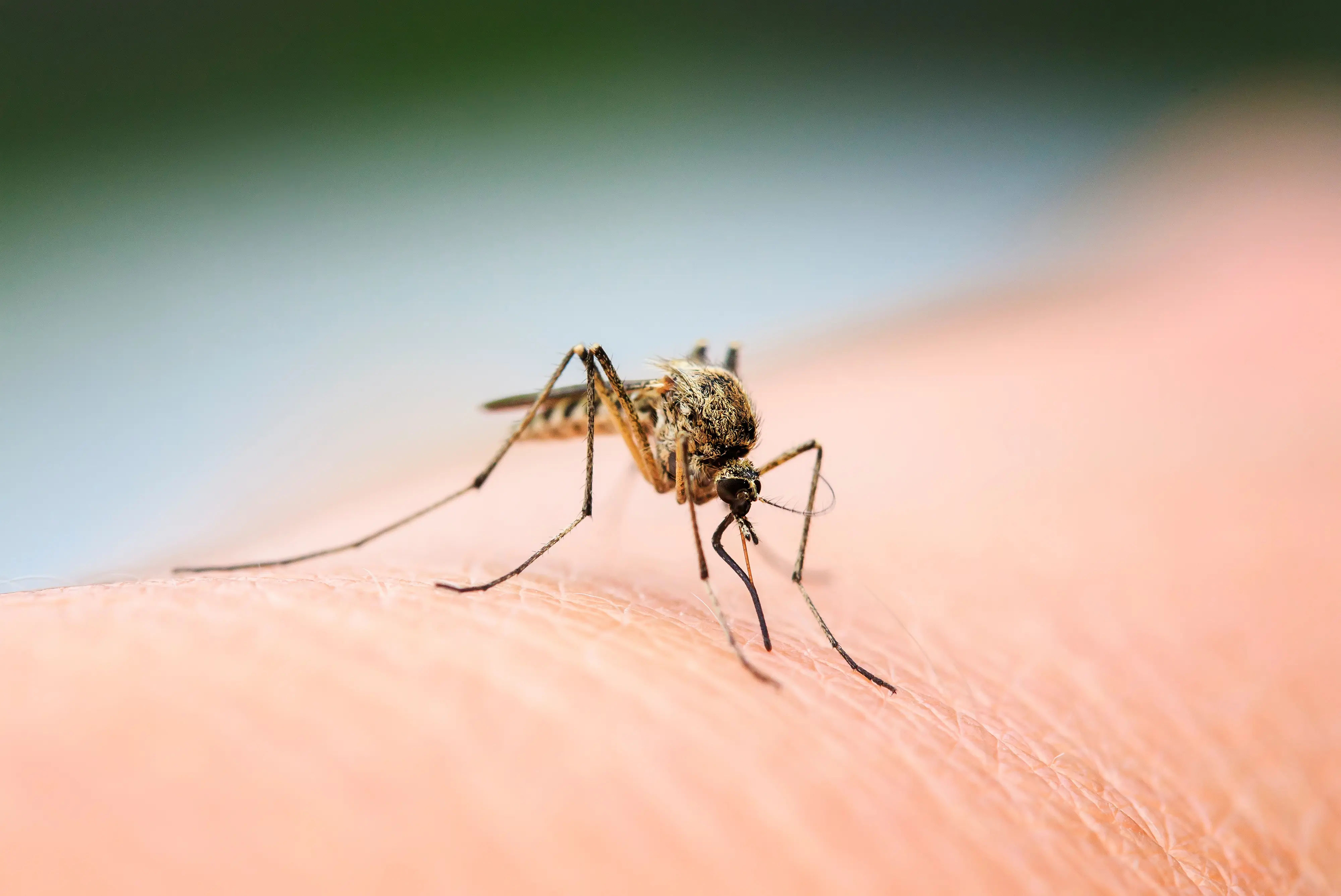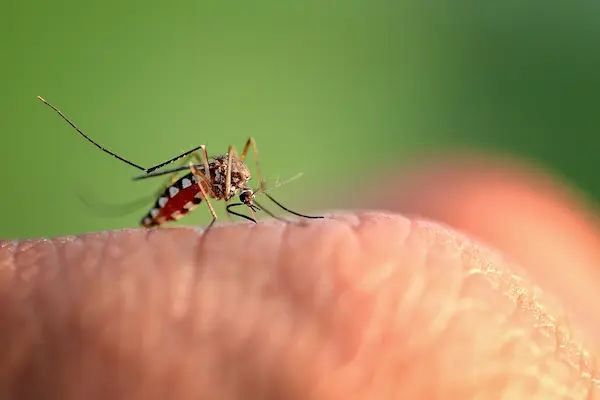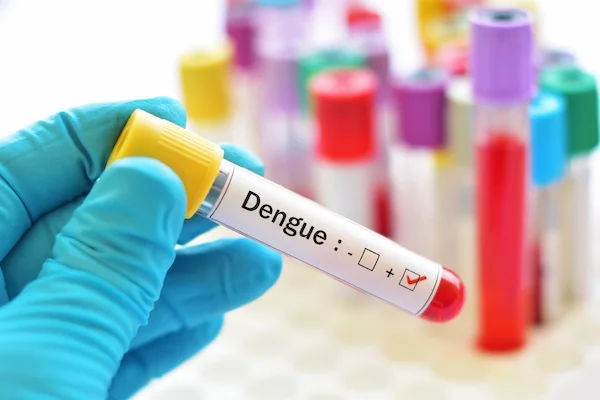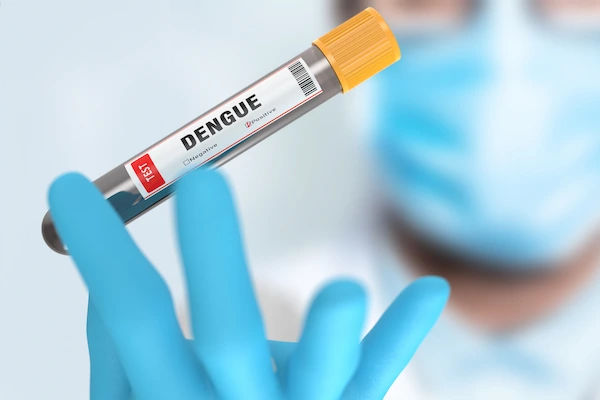Dengue Fever Overview and Key Information
Discover essential information about Dengue Fever, including its symptoms, transmission, diagnosis, treatment options, and tips for prevention. Stay informed to recognize signs early and manage the condition effectively.

Written by Dr. Dhankecha Mayank Dineshbhai
Reviewed by Dr. M L Ezhilarasan MBBS
Last updated on 25th Aug, 2025

Introduction
Dengue fever is a common mosquito-borne illness that affects millions of people worldwide, especially in tropical and subtropical regions. While most cases are mild, severe dengue (also known as dengue haemorrhagic fever) can be life-threatening if not treated promptly. This article will help you understand dengue fever, its symptoms, causes, prevention, and when to seek medical help.
What Is Dengue Fever?
Dengue fever is caused by the dengue virus, which is transmitted to humans through the bite of an infected Aedes aegypti mosquito. This mosquito is most active during the day, particularly in the early morning and late afternoon. Dengue is not contagious and does not spread directly from person to person.
Consult a Top General Physician for the best advice
Symptoms of Dengue Fever
Symptoms usually appear 4–10 days after being bitten by an infected mosquito. Common signs include:
- High fever (104°F or higher)
- Severe headache
- Pain behind the eyes
- Muscle and joint pain (often called "breakbone fever")
- Nausea and vomiting
- Skin rash (appearing 2–5 days after fever starts)
- Mild bleeding (such as nosebleeds or gum bleeding)
In some cases, dengue can progress to severe dengue (dengue haemorrhagic fever or dengue shock syndrome), which is a medical emergency. Warning signs include:
- Severe abdominal pain
- Persistent vomiting
- Rapid breathing or difficulty breathing
- Bleeding gums or blood in vomit/stool
- Extreme fatigue or restlessness
If you or a loved one experience these severe symptoms, seek medical attention immediately.
How Dengue Affects Your Health
Most people recover from dengue within a week or two with proper care. However, severe dengue can lead to:
- Plasma leakage (fluid accumulation in the lungs or abdomen)
- Organ damage (liver, heart, or brain)
- Severe bleeding
- Shock (dangerously low blood pressure)
Early detection and medical care significantly improve recovery chances.
How Is Dengue Diagnosed?
Doctors diagnose dengue through:
- Blood tests (to detect the virus or antibodies)
- Complete blood count (CBC) (to check platelet levels, which often drop in dengue)
Get Your Health Assessed
Treatment for Dengue Fever
There is no specific antiviral treatment for dengue. Management focuses on relieving symptoms and preventing complications:
- Stay hydrated – Drink plenty of fluids (water, oral rehydration solutions, coconut water).
- Rest – Avoid strenuous activities.
- Pain relief – Use paracetamol (acetaminophen) for fever and pain. Avoid aspirin or ibuprofen, as they can increase bleeding risk.
- Monitor symptoms – Watch for warning signs of severe dengue.
Hospitalization may be needed for severe cases, especially if there is significant fluid loss or bleeding.
Preventing Dengue Fever
Since there is no widely available vaccine for dengue in all regions, prevention is key. Here’s how you can protect yourself and your family:
1. Prevent Mosquito Bites
- Use mosquito repellents (containing DEET, picaridin, or oil of lemon eucalyptus).
- Wear long-sleeved clothing to reduce skin exposure.
- Use mosquito nets while sleeping, especially during outbreaks.
2. Eliminate Mosquito Breeding Sites
The Aedes mosquito breeds in stagnant water. Regularly check and remove standing water from:
- Flower pots, coolers, and buckets
- Tires, discarded containers, and gutters
- Pet water bowls (change water daily)
3. Community Awareness
- Encourage neighbors to keep surroundings clean.
- Support local mosquito control programs.
When to See a Doctor
Consult a healthcare provider if you experience:
- High fever lasting more than 2 days
- Severe headache, vomiting, or abdominal pain
- Signs of dehydration (dry mouth, dizziness, reduced urination)
- Bleeding or bruising easily
For severe symptoms, seek emergency care immediately.
Final Thoughts
Dengue fever is a serious but preventable disease. By taking simple precautions, like avoiding mosquito bites and eliminating breeding sites, you can significantly reduce your risk. If you suspect dengue, early diagnosis and proper care are crucial for recovery.
Consult a Top General Physician for the best advice
Consult a Top General Physician for the best advice

Dr. Swathi Reddy Perugu
General Physician/ Internal Medicine Specialist
7 Years • MBBS, MD (General Medicine)
Hyderabad
Health plus, Hyderabad

Dr. Harshendra Jaiswal
General Physician/ Internal Medicine Specialist
12 Years • MBBS , MD (General medicine)
Kolkata
108 DHANA DHANVANTARI Clinic, Kolkata
(25+ Patients)

Dr. Ashita Kuruvilla
General Practitioner
6 Years • MBBS
Kolkata
KVC CLINIC, Kolkata

Divyashree K
General Physician/ Internal Medicine Specialist
5 Years • MBBS
Bengaluru
Apollo Clinic, JP nagar, Bengaluru

Dr. Dhanraj K
General Physician/ Internal Medicine Specialist
25 Years • MBBS, MD Internal Medicine - Osmania Medical College, Hyderabad
Hyderabad
Apollo Hospitals Jubilee Hills, Hyderabad
(375+ Patients)
Consult a Top General Physician for the best advice

Dr. Swathi Reddy Perugu
General Physician/ Internal Medicine Specialist
7 Years • MBBS, MD (General Medicine)
Hyderabad
Health plus, Hyderabad

Dr. Harshendra Jaiswal
General Physician/ Internal Medicine Specialist
12 Years • MBBS , MD (General medicine)
Kolkata
108 DHANA DHANVANTARI Clinic, Kolkata
(25+ Patients)

Dr. Ashita Kuruvilla
General Practitioner
6 Years • MBBS
Kolkata
KVC CLINIC, Kolkata

Divyashree K
General Physician/ Internal Medicine Specialist
5 Years • MBBS
Bengaluru
Apollo Clinic, JP nagar, Bengaluru

Dr. Dhanraj K
General Physician/ Internal Medicine Specialist
25 Years • MBBS, MD Internal Medicine - Osmania Medical College, Hyderabad
Hyderabad
Apollo Hospitals Jubilee Hills, Hyderabad
(375+ Patients)





